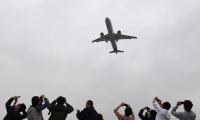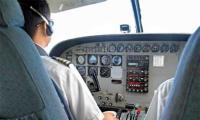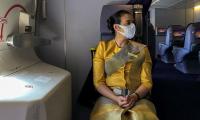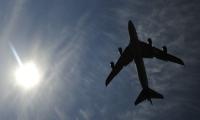DGCA Agrees to Airfare Data Sharing: Analysis & Regulation
DGCA will receive aggregated airfare data from Indian airlines to analyze trends. This follows recommendations from a Parliamentary panel for AI-driven airfare regulation.
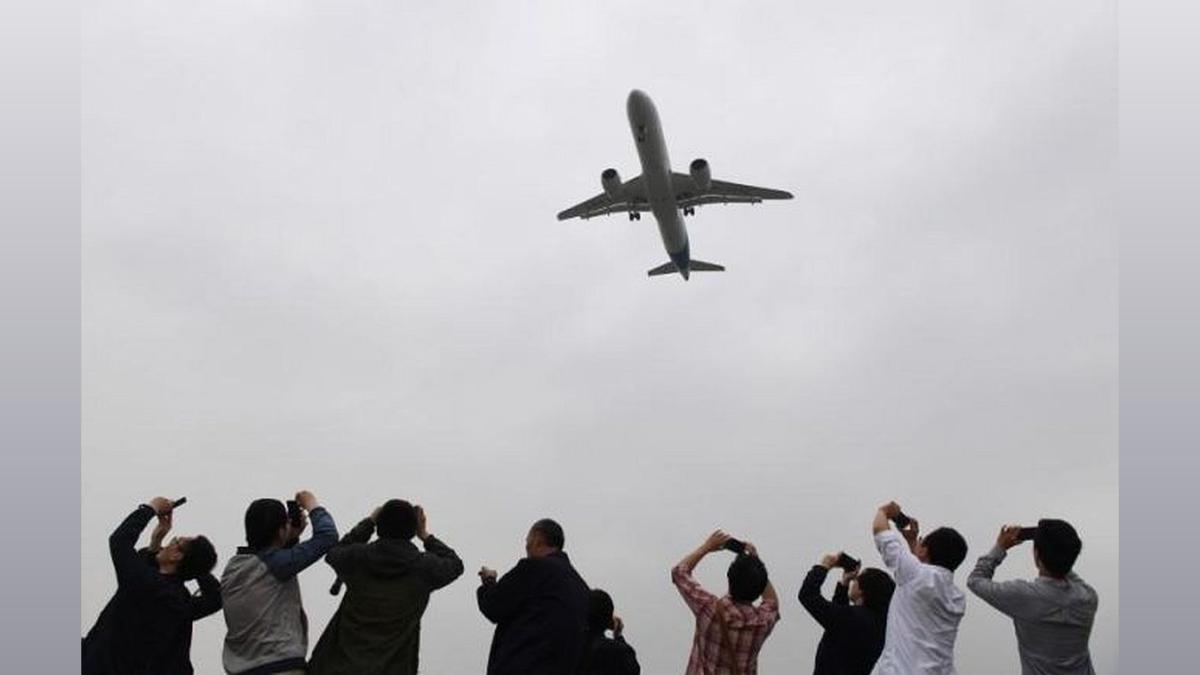
Photograph: Greg Baker/Reuters
Mumbai, Mar 26 (PTI) The Directorate General of Civil Aviation (DGCA) has "accepted" the Federation of Indian Airlines (FIA) plea to furnish aggregated airfares data to it, a move that will help analyse airfare trends, FIA said in a statement on Wednesday.
FIA members had earlier reportedly refused to share ticket-wise fare data for two years with the DGCA saying it could harm competition.
"Following discussions, the DGCA has kindly accepted FIA's request that FIA member airlines furnish aggregated airfare data to enable DGCA to analyse airfare trends," the domestic airlines body said in the statement.
FIA members comprise Air India, IndiGo, and SpiceJet.
The FIA said it, along with its members, was looking forward to working closely with the DGCA and the Ministry of Civil Aviation towards ensuring growth of the civil aviation sector by providing greater air connectivity at affordable fares in the country.
Earlier, a Parliamentary panel recommended a new Artificial Intelligence (AI)-driven "stringent" airfare pricing regulation mechanism for monitoring airfares, saying the current regulatory framework under the DGCA "lacks" the capacity to proactively regulate them.
The Department-Related Parliamentary Standing Committee on Transport, Tourism and Culture in its 375th report "Demands for Grants (2025-26) Of Ministry of Civil Aviation" also recommended that the DGCA be empowered with quasi-judicial authority to impose temporary price caps or penalties on airlines engaging in "exploitative" practices.
The panel, headed by JD(U) Rajya Sabha MP Sanjay Kumar Jha, in its report, also recommended developing a mobile application, "Airfare Vigil," on the lines of the cVIGIL mobile app of the Election Commission, to empower citizens to report instances of "arbitrary airfare pricing".
The timeline for implementation should span 18-24 months, with Phase I focusing on high-traffic routes within six months and nationwide rollout completed by 2026, as per the report, which was tabled in the Lok Sabha and presented in the Rajya Sabha on Tuesday.
The committee also recommended that the existing Tariff Monitoring Unit (TMU) within the DGCA be revamped with AI-driven tools for real-time data analysis and anomaly detection.
"Airfare Vigil" will be integrated with the AI-powered "AirPrice Guardian" system, enabling citizen reports to complement predictive analytics in identifying exploitative pricing patterns. This initiative will foster participatory governance by involving citizens in airfare regulation while strengthening DGCA's ability to address consumer grievances swiftly and effectively," it said.
FIA members had earlier reportedly refused to share ticket-wise fare data for two years with the DGCA saying it could harm competition.
"Following discussions, the DGCA has kindly accepted FIA's request that FIA member airlines furnish aggregated airfare data to enable DGCA to analyse airfare trends," the domestic airlines body said in the statement.
FIA members comprise Air India, IndiGo, and SpiceJet.
The FIA said it, along with its members, was looking forward to working closely with the DGCA and the Ministry of Civil Aviation towards ensuring growth of the civil aviation sector by providing greater air connectivity at affordable fares in the country.
Earlier, a Parliamentary panel recommended a new Artificial Intelligence (AI)-driven "stringent" airfare pricing regulation mechanism for monitoring airfares, saying the current regulatory framework under the DGCA "lacks" the capacity to proactively regulate them.
The Department-Related Parliamentary Standing Committee on Transport, Tourism and Culture in its 375th report "Demands for Grants (2025-26) Of Ministry of Civil Aviation" also recommended that the DGCA be empowered with quasi-judicial authority to impose temporary price caps or penalties on airlines engaging in "exploitative" practices.
The panel, headed by JD(U) Rajya Sabha MP Sanjay Kumar Jha, in its report, also recommended developing a mobile application, "Airfare Vigil," on the lines of the cVIGIL mobile app of the Election Commission, to empower citizens to report instances of "arbitrary airfare pricing".
The timeline for implementation should span 18-24 months, with Phase I focusing on high-traffic routes within six months and nationwide rollout completed by 2026, as per the report, which was tabled in the Lok Sabha and presented in the Rajya Sabha on Tuesday.
The committee also recommended that the existing Tariff Monitoring Unit (TMU) within the DGCA be revamped with AI-driven tools for real-time data analysis and anomaly detection.
"Airfare Vigil" will be integrated with the AI-powered "AirPrice Guardian" system, enabling citizen reports to complement predictive analytics in identifying exploitative pricing patterns. This initiative will foster participatory governance by involving citizens in airfare regulation while strengthening DGCA's ability to address consumer grievances swiftly and effectively," it said.
You May Like To Read
TODAY'S MOST TRADED COMPANIES
- Company Name
- Price
- Volume
- Vodafone-Idea-L
- 11.65 (+ 3.56)
- 106772451
- Alstone-Textiles
- 0.28 ( -3.45)
- 44187760
- Mangalam-Industrial
- 0.88 ( -2.22)
- 39177573
- Sunshine-Capital
- 0.27 (+ 3.85)
- 35956340
- GMR-Airports
- 104.40 (+ 6.37)
- 30453005
